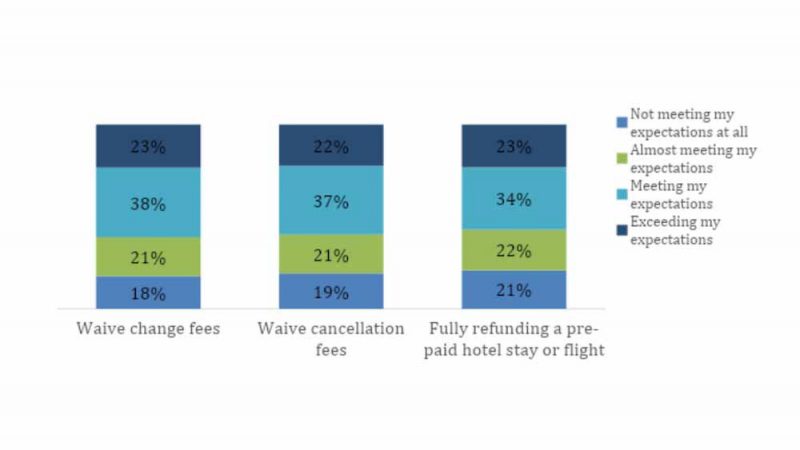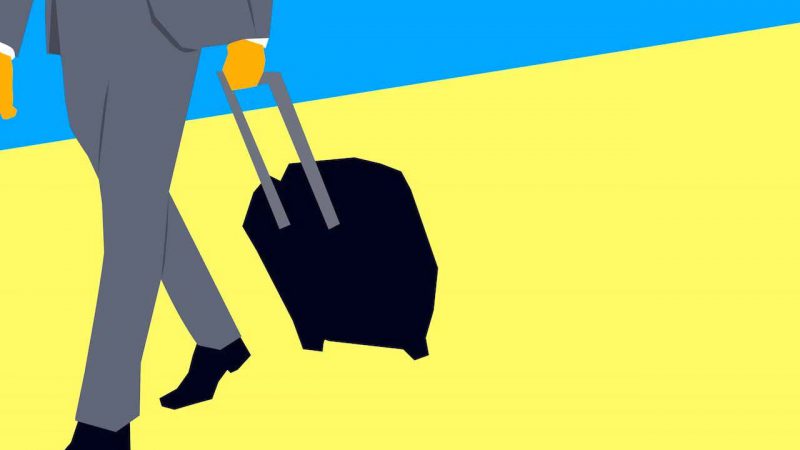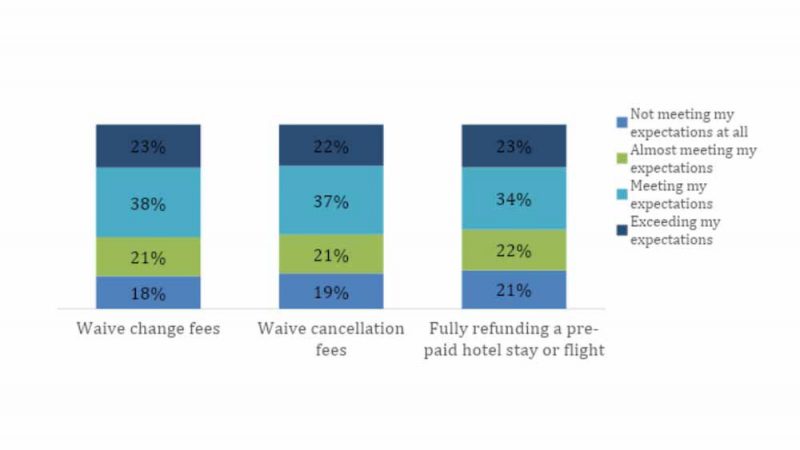Coronavirus Response: Travelers Weigh In
According to J.D. Power, travelers are satisfied with the way the travel and hospitality industries have handled the crisis so far
March 27, 2020


As travelers and travel suppliers struggle to make sense of what impact the coronavirus crisis is having on their personal and professional lives, a pulse survey conducted by J.D. Power finds that the travel industry is generally perceived by consumers to have comported itself well so far.
The survey of 1,633 past-year business and/or leisure travelers conducted March 12-13, 2020, during the first comprehensive wave of travel cancellations, finds that 60 percent of travelers agree hoteliers, cruise lines and airlines have demonstrated concern for the health and safety of the traveling public. Only 33 percent of travelers think the industry is not doing enough to help consumers protect themselves from illness while on the road. In general, the more often consumers traveled, the better they felt about the industry’s response to the crisis.
Coronavirus Concerns and Travel Industry Response
For consumers canceling travel plans to hunker down and follow directives from authorities to engage in social distancing, potential penalties associated with last-minute cancelations run top of mind. Travelers are particularly concerned about getting full refunds for prepaid (or non-cancellable) flights or hotel stays, followed by the waiving of change or cancellation fees.
For the most part, the industry appears to have been responsive. More than half of the travelers surveyed believe travel suppliers are meeting or exceeding expectations on cancellation policies. Still, four in ten believe that travel suppliers could be doing better on this front.
Customer Communication and Confusion
In the midst of this unprecedented public health event, lack of information has emerged as one of the biggest sources of frustration and concern for both business and leisure travelers. Effective customer communication about measures to optimize the hygiene of planes and hotel rooms has therefore been a critical factor in reassuring travelers through the crisis.
Here, the perceptions of travel suppliers are somewhat mixed. While a majority of travelers (65 percent) believe that travel suppliers have provided a good level of information about cleaning procedures, one in four indicate travel suppliers are not meeting their expectations for information about how they manage indoor air quality.
Pandemic Plotline
As the country has elevated its response to the crisis, the attitude of travelers surveyed has been somewhat sanguine. Consumers anticipate a beginning, middle and an end to the pandemic, and once the lifecycle is complete, plans for both business and leisure travel are expected to be put back on the books.
J. D. Power’s Travel Business Intelligence leaders observed similar positive attitudes about travel post September 11th, 2001. Thus, it is imperative for travel suppliers to take the long view in weathering the current storm.
“Travel suppliers have done a good job showing they are not tone-deaf to travelers’ concerns. While the large hotel chains and airlines have focused on communicating messages of reassurance, the policies each sector has implemented are somewhat inconsistent and downright confusing. This is especially true for cancellation policies,” says Andrea Stokes, Practice Lead for Hospitality at J.D. Power.
“This is not the time to nickel and dime customers on issues like refunds, penalties and waivable fees. Our advice is to keep these policies straightforward without exceptions and qualifiers”, says Michael
Taylor, Practice Lead for Travel at J.D. Power. “This will go a long way in generating trust among customers once the pandemic wanes and travel is permissible again.”
As we have seen in previous black swan events — including 9/11 and the housing market crash — those travel suppliers who score high on customer satisfaction going into a downturn will be the first to rise back as pent-up demand returns to the market on the other side of the crisis.





